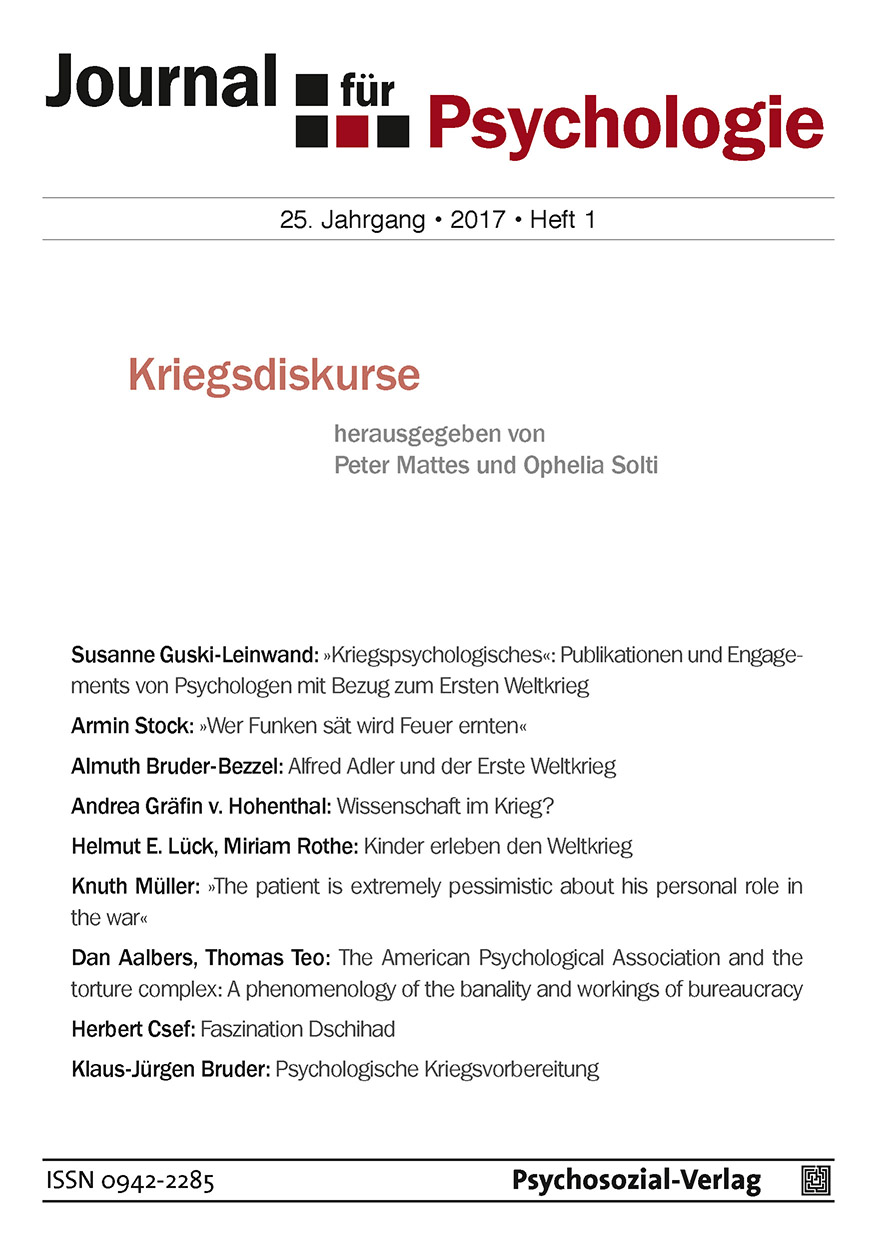»The patient is extremely pessimistic about his personal role in the war«
Keywords:
Office of the Coordinator of Information, Office of Strategic Services, American Psychoanalytic Association, Chicago Psychoanalytic Institute, Franz Alexander, World War II, totalitarian/revolutionary attitudesAbstract
An a-political psychoanalysis as proclaimed by Ernest Jones in 1949 never existed. It neither existed during the times of Sigmund Freud nor in later years. Early collaboration with the military began in 1918 at the 5th Budapest Congress of the International Psychoanalytic Association (IPV). But the high hopes for the recognition of psychoanalysis by the military establishment at the end of World War I soon vanished, as Freud wrote rather disenchanted to Max Eitingon on April 6, 1919 (Freud in: Schröter 2005, p. 151). A revival of interest by the military-intelligence complex in psychoanalytic theory and practice began in autumn of 1941, just a few months prior to the Japanese attack on Pearl Harbor on December 7th. The Chicago Psychoanalytic Institute, under the aegis of Franz Alexander, played a key role in analyzing the state of morale of the American public on behalf of the first centralized intelligence service of the United States – the Office of the Coordinator of Information (COI), headed by William J. Donovan. By studying isolationist, fascist, and communist attitudes to understand underlying unconscious processes and eventually »cure« so-called »revolutionary« attitudes (i.e. isolationist, fascist, or communist attitudes), renowned members of the Chicago Institute such as Franz Alexander, Therese Benedek, or Michael Grotjahn began to collaborate with the US-intelligence community in the latter months of 1941. The planning and execution of the collaboration between the Chicago Institute and the US-intelligence community will be addressed briefly in the following article.Downloads
Published
2017-04-05
How to Cite
Müller, Knuth. 2017. “»The Patient Is Extremely Pessimistic about His Personal Role in the War«”. Journal für Psychologie 25 (1). https://journal-fuer-psychologie.de/article/view/428.
Issue
Section
Schwerpunkt
License
This license allows private use and unmodified distribution, but prohibits editing and commercial use (further information can be found at: https://creativecommons.org/licenses/by-nc-nd/4.0/).
The terms of the Creative Commons licence only apply to the original material. The reuse of material from other sources (marked with a reference) such as charts, illustrations, photos and text extracts may require further permission for use from the respective copyrights holder.



